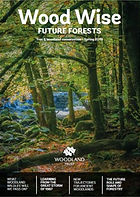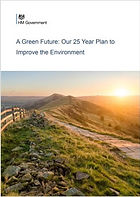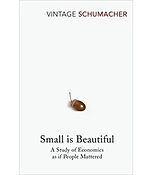Resource Materials
The following reports, publications and books provide an insight into the way the human race is responding to the causes and impact of climate change. The books are available to loan from the library in St Mark's Church, on Leeds Road in Harrogate.
Whilst some of the reports included here may have been prepared by organisations with a particular political stance, Zero Carbon Harrogate has no political allegiance and strives to achieve a balanced political approach.
EVENT PRESENTATIONS
Woodlands for Life

Woodlands for Life
Ian Fraser
Zero Carbon Harrogate
England's Northern Forest
Nick Sellwood
Woodland Trust
REPORTS AND PUBLICATIONS - GENERAL
A Brief Guide To The Benefit Of Urban Green Spaces
University of Leeds
Urban green spaces such as domestic gardens, parks and woodlands provide a multitude of benefits to human urban populations, and a vital habitat for wildlife. By improving physical fitness and reducing depression, the presence of green spaces can enhance the health and wellbeing of people living and working in cities.
This document presents a summary of the existing literature around the importance of urban green space
Sixth Carbon Budget
The UK's Path to Net Zero
Committee on Climate Change
We recommend that the UK sets a Sixth Carbon Budget to require a reduction in UK greenhouse gas emissions of 78% by 2035 relative to 1990, a 63% reduction from 2019. This will be a world-leading commitment, placing the UK decisively on the path to Net Zero by 2050 at the latest, with a trajectory that is consistent with the Paris Agreement.
Reducing UK Emissions - Progress Report to Parliament
Committee on Climate Change
The Covid-19 pandemic has changed all of our lives. Its effects are far-reaching – its implications profound. Our 2019 report to Parliament urged Government to act on climate. “Now, do it” was our call. Twelve months on that remains our emphatic message, but with a new determination: we must seize the opportunity to make the Covid-19 recovery a defining moment in tackling the climate crisis. We say to the Government: “act courageously - it’s there for the taking”.
Faster, Further, Fairer
Environmental Justice Commission
As the UK seeks to recover from the Covid-19 crisis, it is vital that we do not move from one crisis and accelerate headlong into another. Moreover, action to address the climate and nature crises can help the UK to recover better with a stronger economy, that is fairer and more resilient. There are enormous benefits to investing in projects up and down the country which will bring economic, social and environmental benefits from upgrading our housing stock to infrastructure for walking and cycling.
Rising to the Climate Emergency
Zero Carbon Britain (2019)
The report provides a blueprint to open new conversations around the scale and speed of change we need to deliver if we are to rise to the climate emergency.
It can be used as a template to help citizens and local and national policymakers develop and deliver zero carbon action plans.
Climate Change Performance Index
Results 2020
Germanwatch, the NewClimate Institute and the Climate Action Network
Global climate action is characterised by opposing trends. Increasing pressure from civil society, backed by scientists, and promising technological developments (such as continued declining costs of renewable energy technologies; advanced storage solutions; and rapid growth in electric mobility), along with important signs of reform of the financial markets all constitute positive dynamics for the transformational change needed to face the global climate crisis.
Royal Society Climate Change Briefings
The Royal Society
The Royal Society has produced a series of briefing documents on the implications of a variety of aspects of climate change for UK policymakers, drawing from special reports produced by the Intergovernmental Panel on Climate Change (IPCC).
-
Climate change and land
-
Ocean, cryosphere and climate change
-
Keeping global warming to 1.5°C
-
References
Zero Carbon Britain: Making it Happen
Centre for Alternative Technology (CAT)
For 10 years now, CAT has been undertaking increasingly detailed research showing that we have the technology needed to rise to the climate challenge. This research remains an important tool for campaigners and policymakers needing to showcase how we can overcome the perceived technical barriers to change.
A Global Call for Leadership on Climate Resilience
Global Commission on Adaptation
This report focuses on making the case for climate adaptation, providing specific insights and recommendations in key sectors: food security, the natural environment, water, cities and urban areas, infrastructure, disaster risk management, and finance.
Global Warming of 1.5C
IPCC
An IPCC Special Report on the impacts of global warming of 1.5°C above pre-industrial levels and related global greenhouse gas emission pathways, in the context of strengthening the global response to the threat of climate change, sustainable development, and efforts to eradicate poverty
The UK's Contribution to Stopping Global Warming
Committee on Climate Change
The UK should set and vigorously pursue an ambitious target to reduce greenhouse gas emissions (GHGs) to 'net-zero' by 2050, ending the UK's contribution to global warming within 30 years. Reflecting their respective circumstances, Scotland should set a net-zero GHG target for 2045 and Wales should target a 95% reduction by 2050 relative to 1990.
Net Zero:Technical Report
Committee on Climate Change
England, Scotland, Wales and Northern Ireland each have an important role to play in delivering a UK net-zero emissions target. However, each devolved administration has a unique set of opportunities and challenges in achieving net-zero emissions, meaning that the combination of options will differ across the UK.
Progress in Preparing for Climate Change
Committee on Climate Change
The Government has failed to increase adaptation policy ambition and implementation through its latest National Adaptation Programme - despite the increasing urgency of addressing the risks from climate change. The climate of the UK is changing, and further change is inevitable regardless of how strongly the world reduces greenhouse gas emissions.
REPORTS AND PUBLICATIONS - NATURAL CAPITAL
Natural capital can be defined as the world’s stocks of natural assets which include geology, soil, air, water and all living things.
Wood: Building The Bioeconomy
European Confederation of the Woodworking Industries - October 2019
Throughout human history, wood has provided us with a diverse, versatile, durable and renewable manufacturing and construction material. Today it is potentially more valuable still. Its use in a bioeconomic development strategy can help reduce, even reverse adverse climate and wider environmental impacts of modern human activity.
Emergency Tree Plan for the UK
Woodland Trust - January 2020
The UK is staring down the barrel of twin existential crises; climate change and biodiversity collapse. This country needs to take urgent action to prevent irreversible
damage. Woodland expansion on a massive scale will play a huge role in addressing these challenges.
Land use: Policies for a Net Zero UK
Committee on Climate Change - January 2020
The UK’s net-zero target will not be met without changes in how we use our land. Those changes must start now. The Committee’s previous work1 has shown it is possible to reduce land-based emissions of greenhouse gases while contributing to other strategic priorities for land such as food production, climate change adaptation and biodiversity. This report focuses on the policies to drive that change. Farmers and landowners will face many challenges over this transition, but the framework set out in this report can help to make it a fair one by creating new opportunities and revenue streams that reflect the benefits they bring to society.
Land use: Reducing emissions and preparing for climate change
Committee on Climate Change - January 2020
This is the first of two reports on how to improve our use of land to meet climate goals. This report identifies areas where changes can enable land-owners to deliver climate change mitigation and adaptation objectives, among the other priorities for land use. In our second report next year we will carry out a deeper assessment of the policy framework to mitigate climate change through land use, to inform the development of the government’s new land management system.
IPBES Global Assessment Report on Biodiversity and Ecosystem Services
IPBES
This report represents a critical assessment, the first in almost 15 years (since the release of the Millennium Ecosystem Assessment in 2005) and the first ever carried out by an intergovernmental body, of the status and trends of the natural world, the social implications of these trends, their direct and indirect causes, and, importantly, the actions that can still be taken to ensure a better future for all.
State of Nature 2019
State of Nature Partnership
Presenting an overview of how the country’s wildlife is faring, looking back over nearly 50 years of monitoring to see how nature has changed in the UK, its Crown Dependencies and Overseas Territories. As well as this long-term view, we focus on what has happened in the last decade, and so whether things are getting better or worse for nature. In addition, we have assessed the pressures that are acting on nature, and the responses being made, collectively, to counter these pressures.
Land for the Many
George Monbiot, Robin Grey, Tom Kenny, Laurie Macfarlane, Anna Powell-Smith, Guy Shrubsole, Beth Stratford
Dig deep enough into many of the problems this country faces, and you will soon hit land. Soaring inequality and exclusion; the massive cost of renting or buying a decent home; repeated financial crises, sparked by housing asset bubbles; the collapse of wildlife and ecosystems; the lack of public amenities – the way land is owned and controlled underlies them all. Yet it scarcely features in political discussions.
State of Natural Capital Annual Report 2019
Natural Capital Commitee
In January, 2018 the government published its 25 Year Environment Plan (25 YEP) setting out how it will deliver on its pledge to leave the environment in a better state for the next generation; a pledge was first made in the 2011 white paper, The Natural Choice. Despite some successes, overall progress since the 2011 white paper has not been good.
State of Nature 2016
Various
This report pools data and expertise from more than 50 nature conservation and research organisations to give a cutting edge overview of the state of nature in the UK and in its seas, Crown Dependencies and Overseas Territories. It presents newly developed measures of change, the latest knowledge on what has driven these changes, and showcases inspiring examples of how we can work together to save nature.
Wood Wise Future Forests
Woodland Trust
Looking back over the last 100 years of trees and woodland in the UK, their age, location and composition provides a constant physical reminder of policies devised, implemented and superseded. It is also a reminder of emerging technologies, economic realities and changing objectives which have led to wholesale changes in our approach to trees and woodland through proactive intervention or casual abandonment.
REPORTS AND PUBLICATIONS - GREEN GROWTH
Green Finance Strategy
HM Government
Building on the important work of the Green Finance Taskforce, this first Green Finance Strategy sets out how government will achieve this ambition and accelerate the growth of green finance, from greening the global financial system and catalysing the investment needed, to driving innovation in financial products and building skills across the financial sector.
A Green Future: Our 25 Year Plan to Improve the Environment
HM Government
This 25 Year Environment Plan sets out government action to help the natural world regain and retain good health. It aims to deliver cleaner air and water in our cities and rural landscapes, protect threatened species and provide richer wildlife habitats. It calls for an approach to agriculture, forestry, land use and fishing that puts the environment first.
University of Leeds: Enhancing the Benefit of Trees on Campus
United Bank of Carbon & Leeds Ecosystem, Atmosphere and Forest Centre, University of Leeds
The University of Leeds provides a place of study and work for over 46,000 people. This community of students and staff (equivalent to the population of a small town) is in a compact space of 40 hectares. A key challenge in such a dense urban setting is to provide a meaningful valuation of trees as urban assets to inform planning and decision making.
BOOKS
The Climate Majority
Leo Barasi
The Climate Majority is not about the climate deniers or the climate activists. It's about apathy, about those who don't talk about global warming - the billions of people who have heard plenty about climate change and acknowledge there's a problem, but who are just not engaged enough to stimulate the change required to stop it.
There Is No Planet B
Mike Berners-Lee
Feeding the world, climate change, biodiversity, antibiotics, plastics - the list of concerns seems endless. But what is most pressing, what are the knock-on effects of our actions, and what should we do first? Do we all need to become vegetarian? Mike Berners-Lee has crunched the numbers and plotted a course of action that is practical and even enjoyable.
Whole Earth Discipline
Stewart Brand
Stewart Brand relies on scientific rigor to shatter myths concerning nuclear energy, urbanization, genetic engineering, and other controversial subjects, showing exactly where the sources of our dilemmas lie and offering a bold, inventive set of policies and design- based solutions for shaping a more sustainable society.
The Future We Choose
Christiana Figueres & Tom Rivett-Carnac
The world Is on fire, from the Amazon to California, from Australia to the Siberian Arctic. The hour is late, and the moment of consequence, so long delayed, is now upon us. Do we watch the world burn or do we choose to do what is necessary to achieve a different future?
GAIA
James Lovelock
Written for non-scientists, Gaia is a journey through time and space in search of evidence in support of a radically different model of our planet. In contrast to conventional belief that life is passive in the face of threats to its existence, the book explores the hypothesis that the Earth's living matter influences air, ocean, and rock to form a complex, self-regulating system that has the capacity to keep the Earth a fit place for life.
FERAL
George Monbiot
How many of us sometimes feel that we are scratching at the walls of this life, seeking to find our way into a wider space beyond? That our mild, polite existence sometimes seems to crush the breath out of us? Feral is the lyrical and gripping story of George Monbiot's efforts to re-engage with nature and discover a new way of living.
Out of the Wreckage
George Monbiot
Today, our lives are dominated by an ideology of extreme competition and individualism. It misrepresents human nature, destroying hope and common purpose. But we cannot replace it without a positive vision, one that reengages people in politics and lights a path to a better world.
How Did We Get Into This Mess?
George Monbiot
George Monbiot is one of the most vocal, and eloquent, critics of the current consensus. How Did We Get into this Mess?, based on his powerful journalism, assesses the state we are now in: the devastation of the natural world, the crisis of inequality, the corporate takeover of nature, our obsessions with growth and profit and the decline of the political debate over what to do.
Food for Thought
Phil Haughton
From breakfast to bedtime the food that we eat and the natural world that we all share have the power to nourish our bodies, nurture our growth and support our health, vitality and survival. But are we taking it all for granted? Are we making the best choices for own bodies and minds, our families, our communities and for the planet?
Small is Beautiful
E F Schumacher
Offering a crucial message for the modern world struggling to balance economic growth with the human costs of globalisation, Small is Beautiful puts forward the revolutionary yet viable case for building our economies around the needs of communities, not corporations.

















































